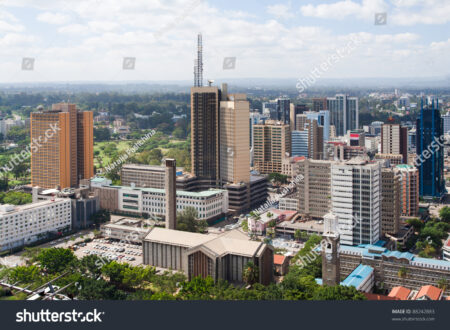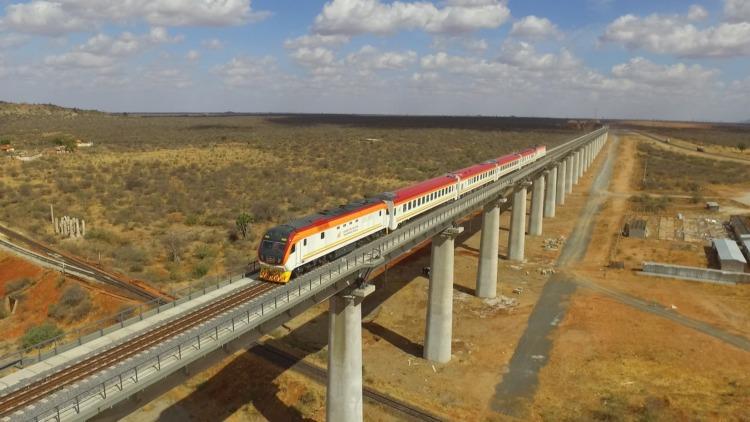Farmers could soon start pocketing 80% of gross earnings from Coffee
President Uhuru Kenyatta is committed to revive the country’s coffee industry if latest indicators are anything to go by.
One of the biggest initiatives announced by the government is the rehabilitation of 500 pulping stations (factories) in 31 coffee-growing Counties across the country.
Coffee farmers are also set to benefit a Cherry Advance Revolving Fund being set by the government; a kitty President Kenyatta says will be operational from July 1 when the 2019-2020 financial year commences. The current financial year (2018-19) ends on June 30.
In the coming fiscal year, the government will unveil Ksh3 billion (US$29.6 million) to be accessed at a much lower three per cent (3%) interest rate per annum.
This is much affordable to farmers whom a huge number currently depend on Savings and Credit Co-operatives (SACCOS), which offer loans at a 1.25 per cent interest rate per month.
Annually, cumulative rates for saccos go up to 15 per cent. Bank loans are also on the higher end despite the capping of interest rates in the country, which places bank rate at four percentage point above the Central Bank of Kenya (CBK).
Currently, CBK’s rate is at nine per cent (9%) as per the recent review, which places the maximum lending rate by commercial banks at 13 per cent.
Despite the cap, banks have continued to invest heavily in government securities while they shy away from lending to the private sector, which they have profiled as high risk borrowers.
During his State of the Nation address on April 4, President Kenyatta said the coffee fund will help to “comprehensively resolve the problem of undue delays in the payment cycle.”
The government is also counting on recommendations by a task force put in place in 2016, when President Kenyatta initiated reforms in the sector.
“My administration has prioritized reforms in the coffee sub-sector, and implemented numerous interventions emanating from the recommendations of the Coffee Taskforce,” the President said.
Farmers’ earnings
As part of the reforms, farmers could start pocketing 80 per cent of gross earnings while Co-operative societies, millers and marketers will share the remaining 20 per cent.
This is however dependent on parliament, if it will pass the new proposed regulations for the sector.
The reforms could go a long way in reviving the once vibrant sector, which has struggled for close to two decades as cartels mint billions at the expense of poor farmers.
READ:Kenya’s coffee doldrums despite numerous revival efforts
The sector has registered a 66 per cent drop in production in the past 20 years, latest government data shows, where production declined from 130,000 tonnes in 1988 to 45, 000 tonnes in 2016-2017.
There were over three million coffee farmers in the country in the 80’s, but the number has reduced to a paltry 700,000 smallholder farmers and 3,200 estates spread across the 31 counties.
“People got tired of being manipulated by the cartels. In the past, Coffee was a reliable crop but now things are different. Personally I uprooted the crop and ventured into tobacco farming,” Stephen Wankuru, a farmer from Migori County told The Exchange in an interview.
Migori is one of the counties where coffee production has diminished.
In Kiambu County, a rich coffee growing region, farmers have recently been uprooting the crop in favour of real estate developments, as developers move to expand investments away from the congested capital-Nairobi.
Governor Ferdinand Waititu was last year forced to outlaw uprooting of coffee by investors to save the crop.
“We do not want to see people uprooting coffee to put up houses. We want to revive the sector,” Governor Waititu said.
Sector performance
Currently, the sector contributes about Ksh20 billion (US$197.3 million) per annum to the economy, data from the Kenyan National Bureau of Statistics (KNBS) shows.
Kenya hosted the 124th Coffee Council meeting in Nairobi in March this year, where industry players converged to discuss challenges and future developments in the sector.
During the forum, International Coffee Organization (ICO) Executive Director José Dauster urged the country to scale up local consumption of coffee products, saying it will make help the sector become competitive even with dwindling export which is a global trend.
Kenya trails her East Africa neighbours with the lowest growth in the coffee sub-sector at 3.2 per cent. Uganda had the highest at 36 per cent followed by Rwanda at 17.6 per cent and Ethiopia at 16.3 per cent.
The average growth of the coffee industry on the continent is 12.3 per cent, according to Kenya’s Coffee Sub-Sector Implementation Committee.
During the Nairobi meeting, ICO announced measures aimed at improving the global coffee prices.
Executive director- Dauster hinted that the organization is mobilizing financial resources from the private sector and donors to support the sector, promoting coffee consumption and advocating the importance of coffee sector.
“We intend to ensure that the international coffee community not only receives a fair living income but also long term sustainability of the global coffee sector,” Sette told journalists at the forum.
ICO has planned a series of consultative meetings this year in partnership with the International Fund for Agricultural Development (IFAD), to be held in May, June and September in Italy, Belgium and Britain respectively. The meetings will focus on strengthening the sector.
Meanwhile, President Kenyatta has also committed to reform the country’s Sugar and Maize sub-sector, a move that will go a long way in supporting his ‘Food Security’ plan under the ambitious Big For Agenda.
“To address the perennial challenges in the Sugar and Maize sub-Sectors, my administration commits to decisively act on the recommendations of the two sectoral taskforces that are slated to report their findings later on this month. I expect that the teams will propose bold and transformative interventions to revive and sustainably grow these important sub-sectors,” the President said in his address to the nation.











